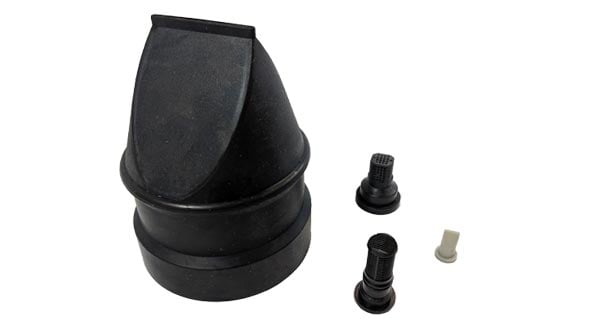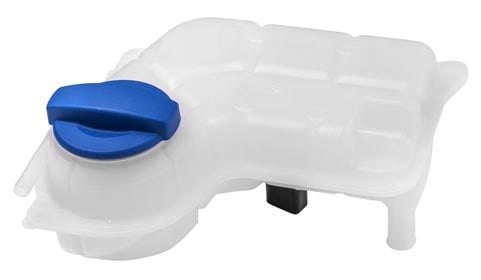Flow Management and Sealing
Flow management is directing, shielding, and filtering both hot and cold air or liquid in complex systems. Intake air in electronic enclosures is filtered and routed through internal air baffles to most efficiently direct cool air in thermal management systems. Vehicles need proper drainage and liquid deflection to direct oil and coolant in a car, or redirect water from a car interior.
Optimize Energy Efficiency
Leverage smart solutions that maximize cooled or heated air use.
Lightweight Solutions
Maximize airflow efficiency without adding weight or bulk.
Maximize Aerodynamics and Improve Fuel Efficiency
Reduce drag or recirculation on vehicles with airflow management that boosts fuel efficiency and vehicle range.
eMobility and Transportation
Boost EV battery range with lightweight sealing and flow management solutions
Extend Product Lifetimes, Reduce Maintenance, and Protect Complex Systems
Products rely on seals to prevent fluids that could corrode or carry dust into a system and degrade functionality, reliability, or product lifetime. Air flow control systems optimize flow either to reduce drag and improve fuel efficiency or bring air to critical components, like engines, heat sinks, heat exchangers or operators to help maintain appropriate temperature. Hoses behave in much the same way but for fluids and require additional leak-free performance to prevent potential damage to nearby components. Filtration systems in either air or liquid systems enable long lasting performance inside the system, reducing fouling and debris build up.
Have a Question?
What Is Flow Management?
Flow management directs, shields, and filters both hot and cold air or liquid in complex systems. Intake air in electronic enclosures is filtered and routed through internal air baffles to most efficiently direct cool air in thermal management systems. Vehicles need proper drainage and liquid deflection to direct oil and coolant in a car, or redirect water from a car interior.
Why Use Fluid Management?
Liquid flow and containment directs and manages fluid flow within a larger application. Custom molded, mandrel-formed and extruded hose assemblies direct liquid between components like radiators, heat exchangers, liquid cold plates and hydraulic devices. For RV-specific applications, bottom pans are designed to remove excess water and moisture from RV slide-out rooms for better leak protection and reduced quality claims at OEMs. Blow molded tanks contain and seal liquids, protected for later use, like washer fluid holding tanks for a heavy-duty application.

What Is Sealing: Particle and Fluid Ingress Protection (IP)
Particle and fluid ingress protection is a primary sealing function and critical to application requirements across nearly every industry as consumers demand more resilient products. A waterproof smart phone is one of the most recognizable consumer product examples of particle and fluid ingress protection today. Consumers and our global environments are unpredictable, putting well-designed technologies into highly variable and unforeseeable use environments. Dropping your smartphone on the dusty ground or parking your car in storm are real scenarios where detrimental contaminants can infiltrate a robustly designed technology. Protect products from dust, debris, water, oil, and other contaminants with well-designed ingress protection seals.
Why Use Particle and Fluid Ingress Protection?
Surfaces unprotected against foreign particles wear faster and require more frequent replacement. Electronics subjected to moisture or debris can short and fail, dramatically increasing warranty claims. Screens, cameras, sensors, speakers, microphones, and input and charger ports are all potential ingress locations on electronics, which require adequate protection for longer product lifetimes and more robust functionality.

Overcome Challenging Environments with Boyd’s IP and Flow Management Solutions
Flow management and ingress protection technologies are often exposed to highly variable use environments and performance requirements. Boyd’s solutions are tested to a wide range of temperature minimums and maximums, chemical and UV exposure, burst and vacuum pressure levels and other reliability and quality parameters to assure your OEM or industry standards are exceeded.
Flow Management: Direct, Shield, and Filter Hot and Cold Air
Airflow management directs and shields both hot and cold air for a variety of purposes in complex systems to improve efficiency, reduce air drag, and contain airflow. Filter intake air to keep it pure, efficiently direct cold air to heat sinks, eliminate trapped air under a vehicle, or deliver cool air into a radiator system or exhaust hot air from a turbocharger.
Hose Assemblies
Boyd’s hoses and hose assemblies are custom designed for a wide variety of applications with varying needs in temperature range performance, chemical exposure resistance, burst and vacuum pressures, and other metrics. Applications include custom radiator hoses, various high-pressure hoses, turbocharger hoses, air intake hose and high temperature silicone radiator hoses.

Silicone Tube
Boyd’s high quality silicone tubes feature high durability, biocompatibility, contamination resistance, and sterilizability to increase the longevity of medical devices. Silicone tubes act as suction, irrigation, and drainage tubes to transport blood (up to 29 days), body fluids, and body-compatible fluids into and out of the human body, with optional connection to suction and irrigation devices. Tubes can be manufactured with integrated connections for suction and flushing devices. Typical applications include operating theaters, anesthesia, intensive care, and the treatment of medical emergencies.

Plugs and Caps
Protect openings and ports from unwanted moisture or liquid when not actively in use with custom designed plugs and caps. Molded rubber plugs, caps, and stoppers seal holes, openings, and containers. Boyd provides a range of custom solutions for your plug, cap, or stopper geometries from our extensive portfolio of rubber and plastic compounds to meet demanding temperature ranges and chemical resistance requirements for virtually any environment.

Air Baffles
Cost effective assemblies are designed to efficiently direct airflow within an assembly. They are commonly made of polypropylene or polycarbonate thin film plastics assembled into an air baffle when used in electronic enclosures or masticated rubber baffles assembled to metal frames for installation in vehicles to manage under hood air recirculation around radiator assemblies.
Protecting Components from Rugged Environmental Conditions
Moving components are susceptible to wear and tear from sand, dust, and debris. Protecting components like handles, shifters, and electronic interfaces with buttons and keypads reduces wear and damage on a device and extends the lifetime, safety, and reliability of complete systems.
Fluid systems can be compromised by foreign particles, so protecting ingress locations is critical to their longevity. Filters, IP seals, particle guards, plugs, and caps prevent debris from entering these fluid systems to improve reliability and reduce maintenance requirements.


Mesh and Screens
Utilize semi-permeable synthetic or metallic screens and meshes designed with specific apertures to inhibit particle and moisture passthrough but still enable transfer of acoustic signals for microphones and speakers. Maintain cleanliness of fluid systems with filters or prevent particle ingress with protective guards.

Common Flow Management and Ingress Protection Materials
Rubber
- • Natural Rubber/Polyisoprene (NR)
• Ethylene-Propylene-Diene-Monomer (EPDM)
• Styrene Butadiene rubber (Buna S/SBR/GR-S)
• Synthetic Polyisoprene (IR)
• Chlorsulfonated Polyethylene, Hyalon (CSM)
• Acrylonitrile Butadiene, Nitrile, Buna N (NBR)
• Chloroprene, Neoprene (CR)
• Silicone (Si)
• Epichlorohydrin (ECO)
• Fluoroelastomer

Plastic
- Thermoplastics (TPE, TPO, TPU, TPV, TPR)
- PVC
- Nylon
- Acrylic
- Acetal
- Ethylene Vinyl Acetate (EVA)
- Polyethylene (HDPE, LDPE, LLDPE)
- Polystyrene (HIPS, PS)
- Polyurethane(PU)
- Polypropylene(PP)
- Polycarbonate(PC)
- Acrylonitrile Butadiene Styrene (ABS)
- Epichlorohydrin (ECO)
- Teflon & glass filled material
Have questions? We’re ready to help!
















